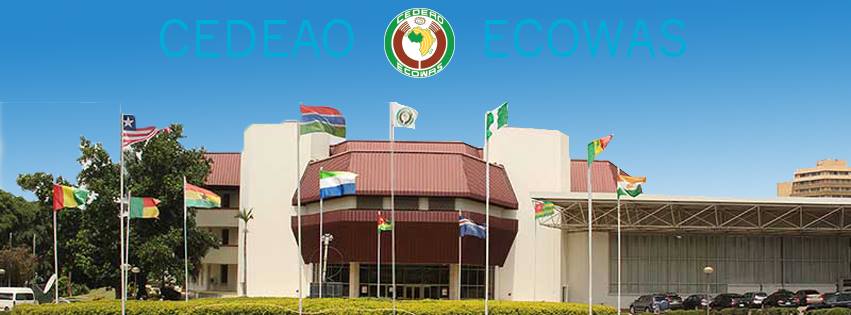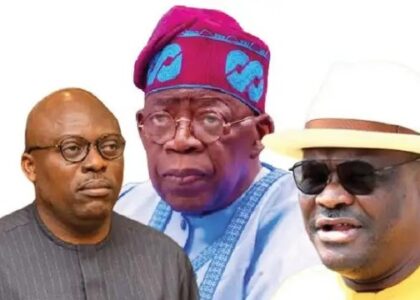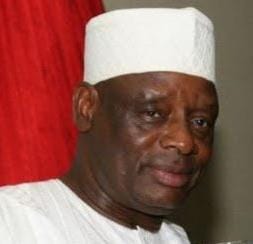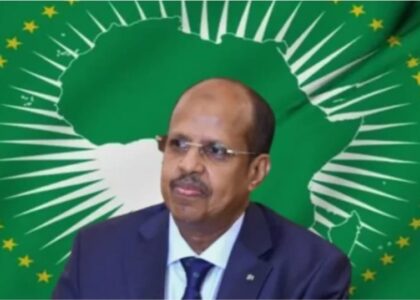It is not possible to watch the display of misplaced priority and an avoidable waste of the resources of the peoples of the sub-region that is currently playing out at the ECOWAS Parliament, with a settled mind. The current employment imbroglio at the Parliament, which at first, merely raised curiosity, is now very appalling due to the manner our Parliamentarians have decided to conduct themselves. One cannot but begin to question whether these Parliamentarians, who are political players at the domestic levels, with widespread evidence of poverty, insecurity, corruption and such other vices to show for it, understand the core mandate of ECOWAS. Needless to stress the imperativeness of a clear understanding of their mandate to their chance of contributing to the mandate of the sub-regional group. It is absolutely appalling for the Parliamentarians to be calling press conferences to trade damaging accusations and counter accusations, pursue self interest and other issues that scarcely have any bearing on the well-being of the peoples of the region, at this time that the region faces serious challenges on all fronts: from egregious security challenges, with international colouration; serious economic crisis, political instability (the coup in Mali, Burkina Faso and Guinea) and such other challenge, to which, in cooperation with other ECOWAS Institutions, we believe the Parliament can better channel its energy.
Rather than pursue and adopt an institutionalized approach to the racial issues (which indeed, this is) now being promoted and defended with claims and counterclaims, the Parliamentarians have decided to launder their dirty linen at a fractious global concert. In the interest of the generality of the region, and of the fulfilment of the objectives of the Parliament, Parliament should clean up this mess, already, and focus on its core mandate. However legitimate the agitations over the employment imbroglio may be, we think there are better ways of dealing with it internally through any of the mechanisms set up in article 25 of its 2016 Supplementary Act without making the type of public spectacle we are seeing right now.
What actually is the ECOWAS Parliament and what are its functions and composition? It is to these we now turn.
The ECOWAS Parliament
Article 13 of the Revised Treaty of ECOWAS, 1993 (as amended by section 3 of Supplementary Protocol A/SP.1/06/06, Amending the Revised Treaty) which re-established a Community Parliament in this manner:
- there is hereby established a Parliament of the Community.
- the community shall ensure the effective involvement of the parliament in decision-making.
- the method of election of the method of election of the Members of the Community Parliament, its composition, functions, powers and organisation shall be defined in a Protocol relating –thereto.
Further to these provisions, Protocol A/P.2/8/94, Relating to the Community Parliament, was made. The 1994 Protocol has further been amended by A/SP.3/06/06, Amending Protocol A/P.2/8/94, Relating to the Community Parliament. A further Supplementary Act A/SA.1/12/16 Relating to the Enforcement of the Powers of the ECOWAS Parliament was made in 2016. All references to ECOWAS law, going forward, except where otherwise specified, are references to the 2016 Supplementary Act.
By article 6, the ECOWAS Parliament is composed of 115 members, with each member State having a guaranteed minimum of five (5) Parliamentarians, while the remaining forty (40) seats are distributed on the basis of population. This accounts for why Nigeria has thirty five (35) seats while a majority of the States have the minimum number of five (5) seats (article 6). This shows that Nigeria is clearly in the majority and cannot but further emphasise how this Nigerian Parliamentarians’ grievance and the consequential disruptions being seen, is likely to further stall the work of Parliament.
Membership of Parliament could be elected by direct universal suffrage but pending the time that universal suffrage is applied, the National Assemblies of member States or their equivalent institutions or organs presently elect ECOWAS Parliamentarians from among themselves (article 18(1)). The tenure of Parliament is four (4) years (article 18(2)). ECOWAS Parliamentarians at the moment are thus the same largely underperforming national legislators! The same people who should be actively giving effect to ECOWAS laws at the domestic level by the domestication (where needed) of the Treaty and other relevant ECOWAS Protocols or by enacting domestic laws to implement salient provisions of the Treaty and other integration laws of ECOWAS.
By article 4, the objectives of Parliament are to: (a) contribute to the efficient and effective implementation of objectives and policies of the Community; (b) strengthen representative democracy in the Community; (c) ensure the right of scrutiny and involvement of the West African populations in the process of integration of the region; (d) contribute to the promotion of peace, security, stability in the West African Region; (e) promote and defend the principles of human rights, democracy, the rule of law, transparency, accountability and good governance; (f) promote the practice of accountability; (g) inform and sensitize the populations of the West African Region on the issues of integration; (h) contribute more to more prosperous future for the peoples of West Africa by promoting collective self-reliance and sustainable economic development; (i) strengthen cooperation, regional solidarity and advancement, with a view to building a sense of common destiny; (j) reinforce the legitimacy of actions taken by the community executive in the field of regional integration; (k) participate in the process of enacting community acts pursuant to the goals of the Community and in areas defined under this supplementary Act; (l) work towards harmonising sectoral policies and legislations of member States; and (m) corporate with national and regional parliaments and similar bodies within and outside West Africa as well as civil societies with a view to promoting regional integration.
Parliament is by article 7, competent to be involved in the enactment of all Community Acts, relating to ECOWAS economic and monetary integration policies or the treaty; involved in the adoption of the budget of the Community; exercise parliamentary oversight; consider, inter alia, any matter relating to human rights and fundamental freedoms and make recommendations to the relevant institution or organ of the Community; the Parliament may also play a consultative role; and may in collaboration with the Council of Ministers or ECOWAS Commission propose, model and uniform laws to the Community.
We strongly believe that it is not too much to expect that Parliament should be interested in galvanising the citizens of the Region towards embracing their rights and responsibilities under ECOWAS laws. It is quite telling that Parliament does not seem concerned about the general lack of the knowledge of its existence by ECOWAS citizens up and down the Region.
To exercise its powers, Parliament is expected to act by way of opinion and mandatory assent (article 8), which must as of necessity be read alongside articles 9 -14. Article 9 covers matters that must be mandatorily referred to the Parliament. These are: community budget; revision of the Community Treaty and its Annexes; annual audit report of Community Organs and Institutions; adoption or review of certain community acts; certain other integration matters; and any other sectoral policy decided upon by the Authority of Heads of States and Government. On the other hand, non-mandatory referral items as contained in article 10, are international agreements affecting Community Institutions, membership sanction, suspension or exclusion of member States by the Community; creation of certain Community institutions; and defence.
For the avoidance of doubt, by article 1, mandatory referral items are those items that must be referred to Parliament while non-mandatory items are those that need not be referred. It must however be stressed that the fact that a matter is required to be mandatorily referred does not mean that Parliament has any power to make binding decisions relating thereto. All that appears from article 11 is that Parliament is expected to just rubber stamp mandatorily referred items by way of an Opinion. In fact, where its Opinion has not come within a stipulated time (90 days as per article 13), it shall be deemed to have given its Opinion. What that clearly means is that, where, as is currently the situation, Parliament decides to engage in unnecessary controversy, while an Opinion is pending, it would be deemed to have given the Opinion, should the controversy prevent it from rendering the Opinion within the stipulated time.
It is however intriguing to note that Parliament is so excluded from such important matters as annual audit reports of the Community and from other areas covered in article 9(1), by relegating it to a mere Opinion giver. For the avoidance of doubt, by article 1, ‘Opinion’ means a resolution of Parliament that is non-binding, while Mandatory Assent of Parliament is binding (article 1), though both Opinion and Mandatory assent are by way of a Resolution of Parliament (article 14).
By article 12, Mandatory Assent is required in all decision making fields covered by article 9, such as the revision of the Treaty or its Annexes; promotion and protection of human rights and fundamental freedoms; adoption or review of Community Acts relating to ECOWAS economic and integration policies. These are the areas where the powers of Parliament have been enhanced to a co-decision making status with Community institutions or organs empowered to make decisions in areas listed in article 12.
There is still a lot more to be done to make Parliament more relevant to the Community. We do think the advisory competence of the Parliament is an expensive waste of time and should actually be scrapped while its Mandatory Assent competence should be expanded to accommodate more items to give a robust scope for the exercise of Parliamentary powers. There is also the need to operationalise the universal suffrage leg of the election of Parliamentarians. the current approach of selecting Parliamentarians from existing national legislators is too faulty a foundation to base the process, given the inevitable result of producing individuals that know little or nothing about the ECOWAS. The requirement of campaigning for parliamentary seats would invariably compel aspirants to familiarise themselves with the law, practice, objectives, progress and challenges of ECOWAS. Without a rounded view of ECOWAS, there would be nothing at all to stop parliamentarians from the cronyism and rent-seeking behaviour that pervade governance in the municipal spheres of member States.
We would like to call on the citizens of ECOWAS to begin to show more interest in the activities of the Parliament and indeed all ECOWAS institutions with a view to holding them accountable. If there is anything the judgments of the ECOWAS Community Courts of Justice have thought us, it is that our Community would be better and more responsive to the needs of its citizens if all its Institutions are up and doing, as the Court. Parliament must now stop this needless and shameful public disputation over employment issues and get busy with its mandate!








